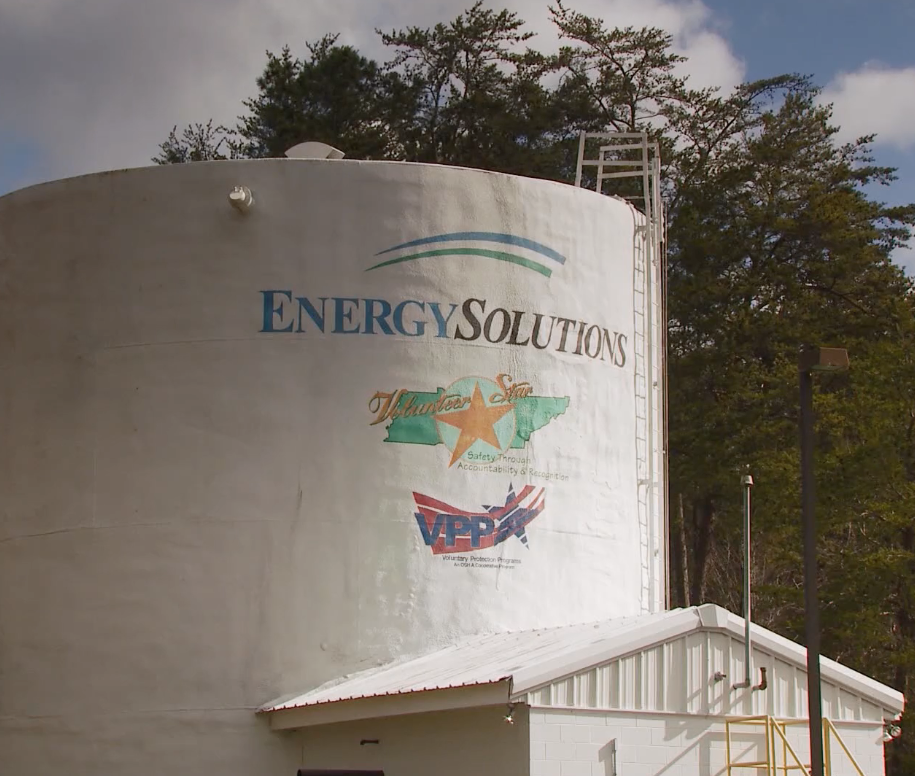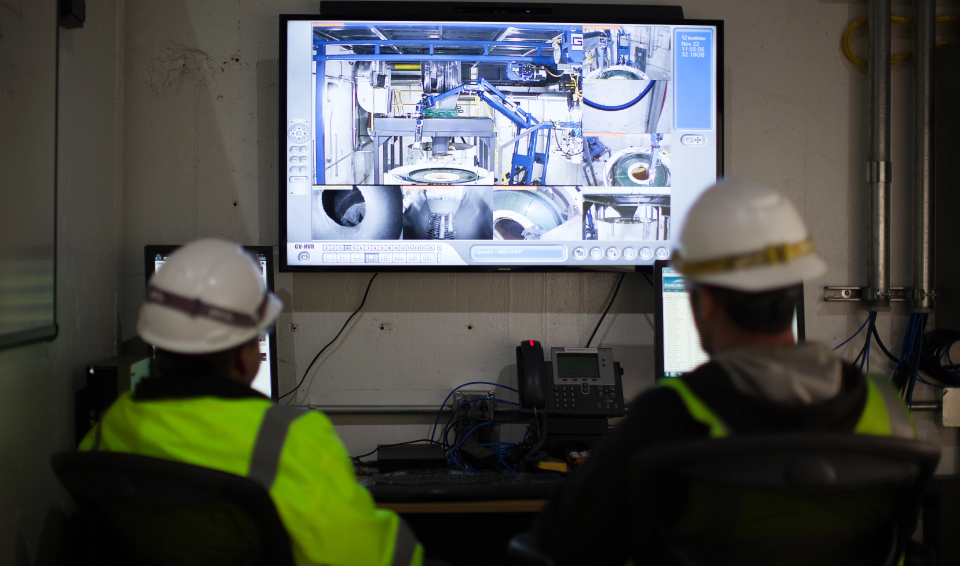This process allows our employees to determine the next steps in volume reduction by segregating certain metals for recycling and the rest to be compacted, incinerated or repackaged for transportation and disposal.
The facility houses radioactive materials processing capabilities including recycle,
Transportation and Disposal Processes
- Sort and Segregation
- Compaction
Material is compacted reducing volume up to 20 to 1, thereby reducing disposal costs.
- Incineration
This is the very latest in technology, this process is an effective method to achieve up to a 200 to 1 volume reduction for incinerable waste (e.g., paper, plastic, wood, used oil, etc.). Specialized equipment and processes also maintain air emissions well below state of Tennessee standards.
- Metal Melt (Recycling)
Several times a year the melter facility is in operation to melt and recycle metals. The molten metal is then poured into molds forming shield blocks which are then utilized in the nuclear industry.
- Green is Clean (GIC)
The facility also has the capabilities for our Green is Clean evaluation, which allows for segregation of potentially radiologically contaminated metals to be found clean and released to a recycler for salvage value. Safe Check allows segregation of material that cannot be recycled, but is suitable for disposal in a State of Tennessee (TN) Subtitle-D landfill versus disposal at our licensed Class A disposal facility in Clive located in Utah’s West Desert.
- High Activity Filter
Recent additions of robotics allow the facility to remotely handle and process any filter, whether plastic or metal. The facility is able to perform sophisticated remote sorting, segregation, size reduction, and grout encapsulation. These capabilities extend to waste forms such as soil, sludge, and legacy “problem” liners as well as to filters.

